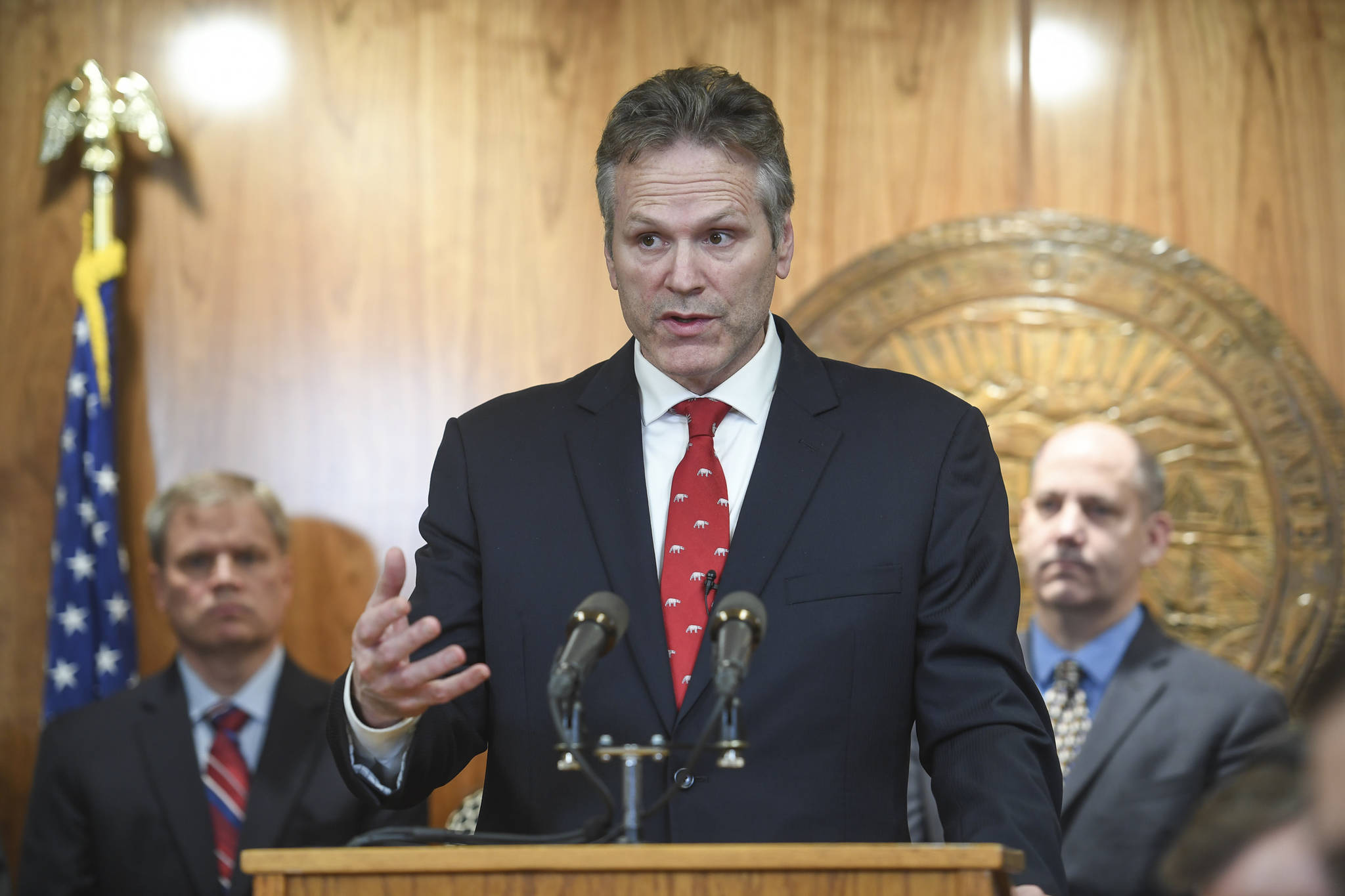Gov. Mike Dunleavy promoted the state of Alaska on the East Coast this past week, but an apparently damning report from CNN Thursday afternoon made things a little awkward during a press conference about the trip.
During a teleconference Thursday, Dunleavy spokesperson Jeff Turner diverted a question about a CNN story, which claims the news organization obtained emails between the Dunleavy administration and the Pebble Partnership, the company behind the controversial Pebble Mine project in Bristol Bay.
The emails allegedly show the Pebble Partnership “secretly coaching Gov. Mike Dunleavy’s office in how to influence the Trump administration to make a decision in the company’s favor,” according to CNN.
Dunleavy has spent the past week in Washington, D.C., and New York City meeting with Trump administration officials and making appearances on national TV.
“We’re here to answer and deal with the D.C. trip,” Turner said, saying he could be contacted separately to answer any questions about the CNN report. Dunleavy said he had been in meetings all day and not seen the report, but would be willing to answer questions once he had.
“It is common practice for an administration to request briefing materials on a specific project,” CNN reports the governor’s office as saying.
The governor’s office did not immediately respond to an email seeking comment.
During the 45-minute teleconference with the press, Dunleavy listed the Trump administration officials he’d met with, including the president himself, to see what the federal government could do to help Alaska. He said his meetings with national media outlets including CNBC, the Wall Street Journal and Bloomberg were done to promote Alaska to investors.
“We have to market Alaska,” Dunleavy said. It can’t be assumed that investors know about all the state has to offer, he said, and it was his job to let people know. “We need to do everything we can to diversify our economy…We didn’t have to work this hard when (oil fields) were pumping a lot of oil.”
The media appearances were not, he said, done for his benefit.
“There’s always rumors floating around, I may be going to a place for reasons other than state business,” Dunealy said. “I’ll do that on my own dime. You’ll see me going on national television and radio to put Alaska on the map.”
Asked what the state has to offer aside from oil, Dunleavy said Alaska has several aspects of an emerging economy with the added benefit of American rule of law.
“Resources and infrastructure that need developing,” he said. Dunleavy said he did not meet with investors on this particular trip, but he sees a future for data farms in Alaska because of the state’s climate and potential for cheap electricity.
Data farms are large complexes full of computer servers where technology companies store data from their millions of users. They require an enormous amount of electricity to run, and Dunleavy referenced Alaska’s use of hydropower as a source of cheap electricity.
The state’s natural resources were something the governor brought up repeatedly.
Alaska has large deposits of rare earth minerals, many of which are used in advanced technologies, according to the U.S. Geological Survey.
Dunleavy said he had conversations with members of the National Security Council who expressed interest in the state’s rare earth resources because the current market for the minerals is dominated by China.
“I think we have a lot to offer investors,” Dunleavy said. Appearing on national media was a way to bring the state to investors’ attention. “We want investors to say to us, ‘this is what we need to come to Alaska,’” he said.
Dunleavy said he believes what investors want is compatible with what Alaskans want and that his administration is, “trying to put people to work.”
• Contact reporter Peter Segall at 523-2228 or psegall@juneauempire.com.

